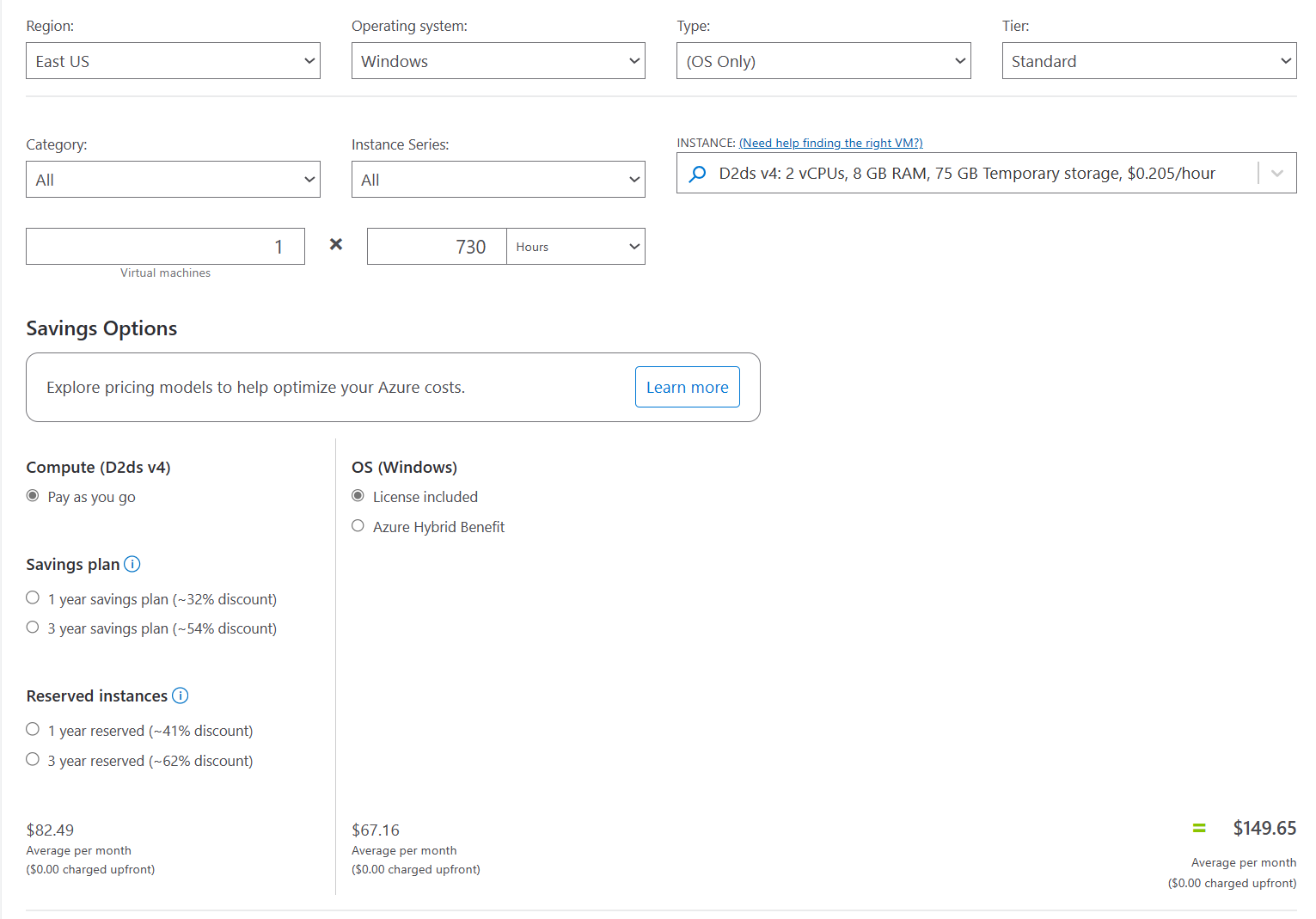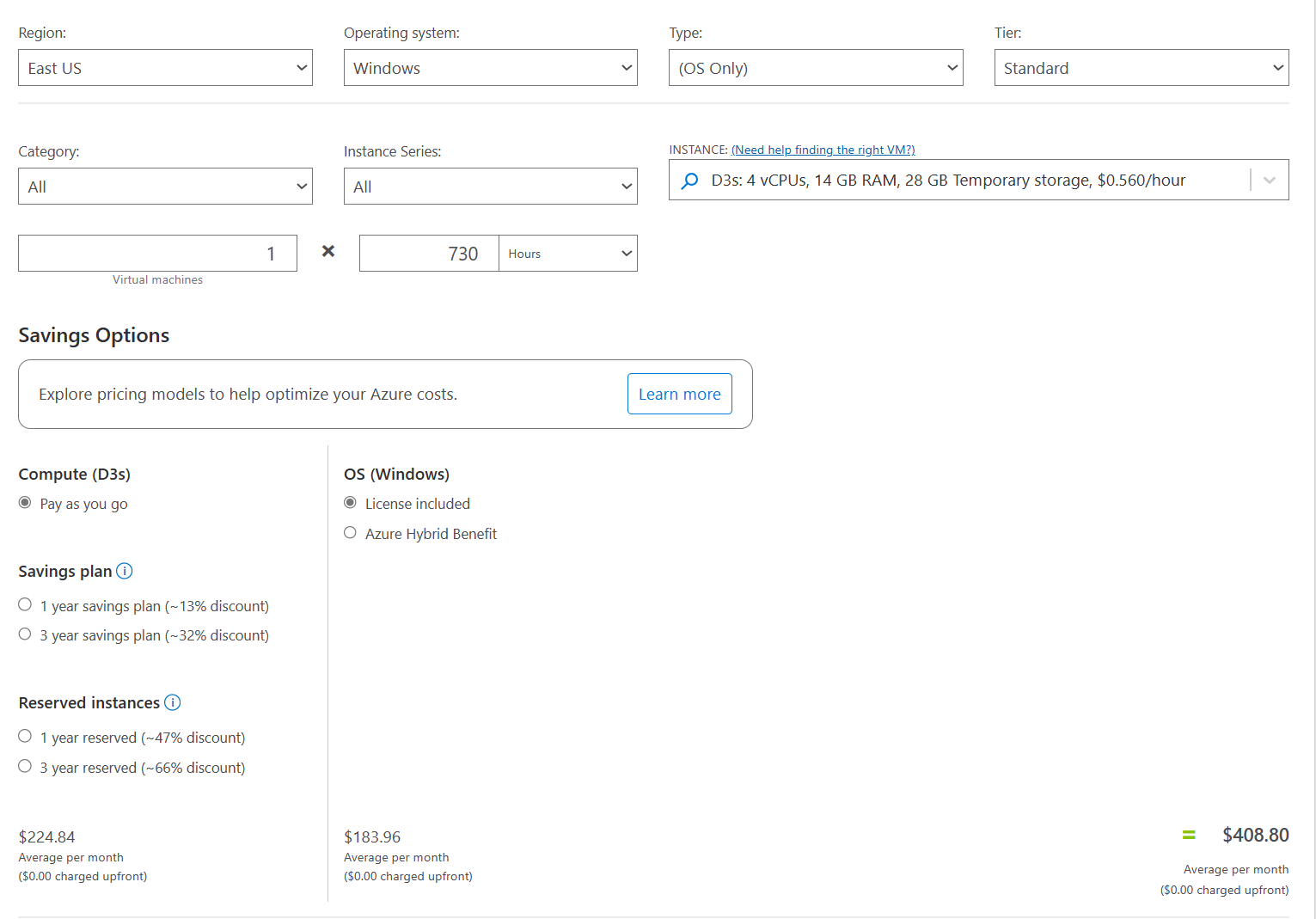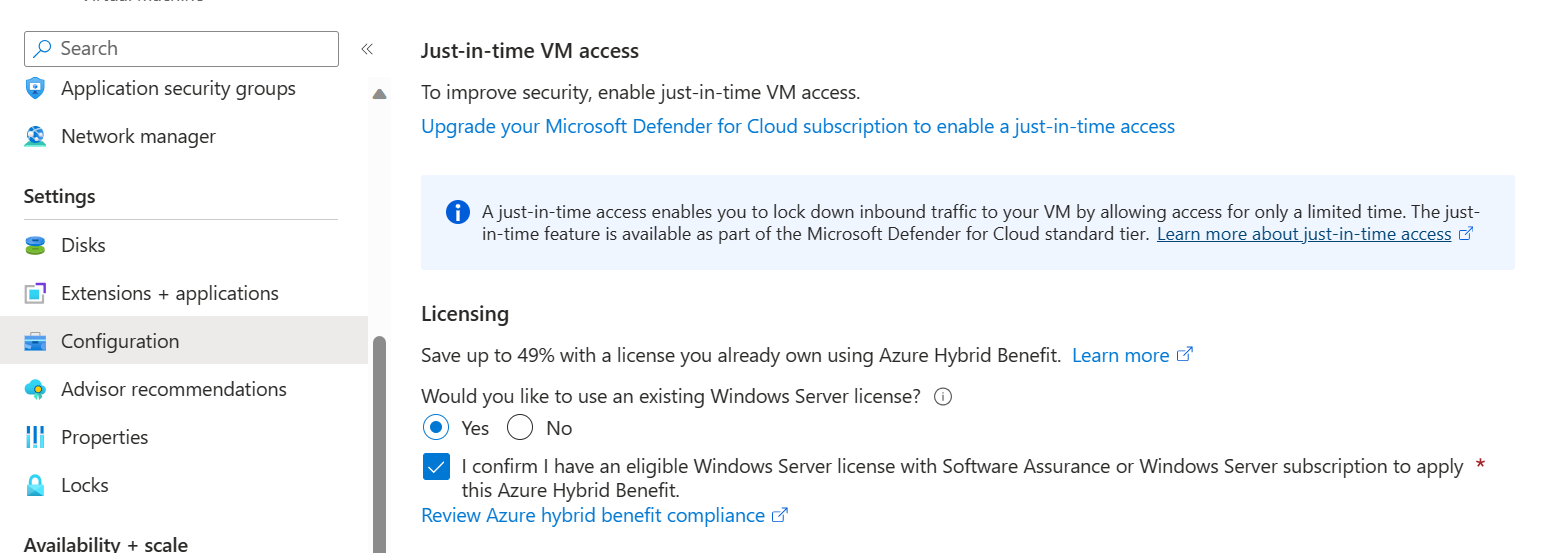For companies using Azure virtual machines, there are many avenues to reduce costs. Historically many companies have focused on the compute aspects of virtual machines. This is the appeal of reservations; by committing to a machine series in a region a company can reduce the computer costs significantly.
While effective, many Microsoft customers overlook the costs of the operating systems which they are leasing per month. To explore this, let’s use Azure Price Calculator and examine the monthly cost of basic VM ( D2ds v4 ) noted in image 1 below:

If we look at the operating system cost per month, we see the customer us charged $67.16 per month. In this scenario 44% of the monthly cost of the VM is attributed to the operating system.
Looking at the reference material from Microsoft, “You need a minimum of 8 core licenses (Datacenter or Standard edition) per VM. For example, 8 core licenses are still required if you run a 4-core instance.” The price for a 3 license of this sku (at the time of this article is $640.00).
So, in this hypothetical situation with the purchase and application of this license to the VM noted in Image 1, it would take just under 10 months to break even. That means the customer in this situation would save $1746.16 over a 3-year stretch (26 months X $67.16).
It should also be noted that the operating system cost per month is often dictated by the number of vCPUs.
If we look at another sample VM ( D3s that have 4 vCPUs) as noted in Image 2, we can see with the increase of vCPUs the operating cost has jumped and the customer in this scenario would be paying $183.96 per month for licensing.

If we apply the same hybrid licensing sku that we noted previously it would take under 4 month to break even. In this secondary case the customer would save $5888.72 over a 3-year duration (32 months X $183.96).
Once acquiring the license, the setting can be set on the virtual machine by toggling the “Yes” option and confirming the license eligibility within the VM configuration page (noted below on Image 3).

It should be noted that the Azure hybrid benefit extends beyond virtual machines, and can be applicable to other avenues of compute such as AKS, Virtual machine scale sets, etc. (from an operating system). In addition to this there also other lanes of azure hybrid benefit that explore SQL (on virtual machines, Azure SQL Managed Instances, and Azure SQL databases).
While reservations and saving plans provide comprehensive savings to the client’s experience on Azure; as we have demonstrated here customers running VMs focused on Windows Servers can explore steep savings by using the Azure Hybrid benefit.


Comments